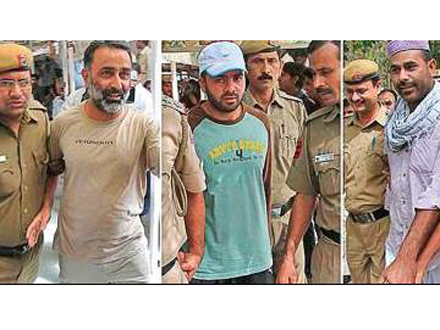
In a corner of a dimly-lit room, Padsha Begum, 65—whose son was Thursday acquitted after 17 years by Delhi High Court in the 1996 Lajpat Nagar blast case—is on a prayer mat with both joy and sorrow reflecting on her face. Her daughter Nighat is reciting some verses from the holy Qur'an loudly.
The acquittal of Begum's son Mirza Nissar Hussian has infused a new lease of life to this Srinagar family that has been living in deep distress for the past 17 years.
Begum says she offered special thanksgiving prayer after hearing about Hussain's acquittal. And so did Nighat.
On Thursday Delhi High Court acquitted two convicts who were given death penalty in the 1996 Lajpat Nagar Market bomb blasts. Mirza Nissar Hussain is one among them.
“Thanks to Almighty Allah. My son will be home after 17 years. Truth has ultimately prevailed,” Begum says. “His acquittal has proven that he was not guilty of what he was framed for. How can an 8th standard student carry out a blast and kill people? We will see our innocent son after 17 years for no fault of his.”
Hussain's sister says, “My another brother Iftikhar, who was also arrested in 1996 in connection with the blasts, was released after 14 years in 2010. By then our family had literally collapsed. While our father had already passed away, two of my brothers were put in jail for no fault. We will see the face of another brother after 17 years. It has been a very tough time.”
Nighat says the family has nothing to celebrate as of now as “Nissar is being implicated in some other case relating to Jaipur blasts.” “What kind of justice is this?” she asks. “If my brother was proven innocent in a case for which he spent 17 years in jail, it is paranoia that they are implicating him in some other case.”




Comments
Add new comment